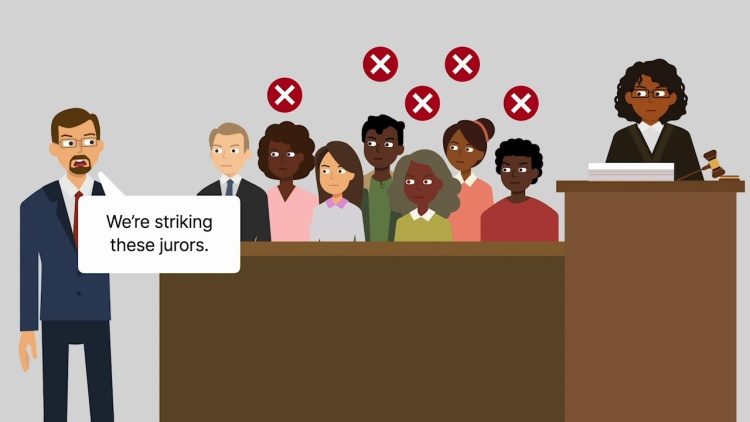Snyder v. Louisiana
United States Supreme Court
552 U.S. 472 (2008)

- Written by Sara Rhee, JD
Facts
Allen Snyder (defendant) was charged with first-degree murder. During jury selection, 36 potential jurors survived challenges for cause, five of whom were Black. The prosecution used peremptory challenges to strike all five Black candidates without providing a justification. Snyder asserted a Batson claim as to two of those candidates, including Jeffrey Brooks, alleging that the prosecution struck them purely because of their race in violation of Snyder’s equal-protection rights. In response, the prosecution claimed that it didn’t strike Brooks because of his race, but instead, in part because Brooks, a college senior, had expressed concern about missing classes, suggesting a risk that he would choose a lesser verdict to avoid the need for a penalty phase of trial. But a law clerk had already confirmed with the school’s dean that Brooks could make up any missed work and the prosecution didn’t strike other candidates expressing similar scheduling concerns. The trial-court judge upheld the peremptory challenges, however, and Snyder was ultimately convicted and sentenced to death. The Louisiana Supreme Court affirmed Snyder’s conviction, similarly rejecting his Batson challenge. The United States Supreme Court granted certiorari.
Rule of Law
Issue
Holding and Reasoning (Alito, J.)
Dissent (Thomas, J.)
What to do next…
Here's why 907,000 law students have relied on our case briefs:
- Written by law professors and practitioners, not other law students. 47,100 briefs, keyed to 996 casebooks. Top-notch customer support.
- The right amount of information, includes the facts, issues, rule of law, holding and reasoning, and any concurrences and dissents.
- Access in your classes, works on your mobile and tablet. Massive library of related video lessons and high quality multiple-choice questions.
- Easy to use, uniform format for every case brief. Written in plain English, not in legalese. Our briefs summarize and simplify; they don’t just repeat the court’s language.





